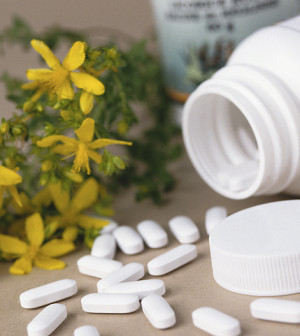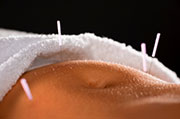- Are You Making This Expensive Thermostat Error This Winter?
- Recognizing the Signs of Hypothyroidism
- 10 Strategies to Overcome Insomnia
- Could Artificial Sweeteners Be Aging the Brain Faster?
- Techniques for Soothing Your Nervous System
- Does the Water in Your House Smell Funny? Here’s Why
- Can a Daily Dose of Apple Cider Vinegar Actually Aid Weight Loss?
- 6 Health Beverages That Can Actually Spike Your Blood Sugar
- Treatment Options for Social Anxiety Disorder
- Understanding the Connection Between Anxiety and Depression
Making Acupuncture Even Safer


Uniformly improving the quality of acupuncture needles would help prevent potential problems such as skin reactions and pain, according to a new study.
“Acupuncture needle manufacturers, including the well-established ones, should review and improve their quality-control procedures for fabrication of needles,” said researcher Yi Min Xie, of the Center for Innovative Structures and Materials at RMIT University in Melbourne, Australia.
Acupuncture, a centuries-old form of medicine that originated in China, involves pricking the skin with needles to alleviate pain and treat various physical and mental conditions.
Although acupuncture is very safe overall, improving the quality of needles can make it even safer, said the authors of the study, which was published online Feb. 12 in the journal Acupuncture in Medicine.
Researchers examined 10 randomly selected needles from each of the two most commonly used brands of stainless steel acupuncture needles. They discovered that many needles had significant surface irregularities or malformed tips.
Some of the needles had metallic lumps and bits of material on their surfaces. If these needles had been used on patients, this metallic residue could have ended up in their tissue and caused allergic or painful reactions, the researchers said in a journal news release.
The malformed tips found on some of the needles could cause bleeding, bruising or high levels of pain during acupuncture, the researchers said.
About 1.4 billion acupuncture needles are used worldwide each year, about 90 percent of which are manufactured in China. Japan and Korea are the other major suppliers.
It’s highly unlikely that poor-quality acupuncture needles would affect a patient’s health, Dr. Mike Cummings, medical director of the British Medical Acupuncture Association and associate editor of the journal, said in a podcast accompanying the study. But people who suffer pain during acupuncture should ask their practitioner to check the quality of the needles they use, he said.
More information
The U.S. National Center for Complementary and Alternative Medicine has more about acupuncture.
Source: HealthDay
Copyright © 2026 HealthDay. All rights reserved.










